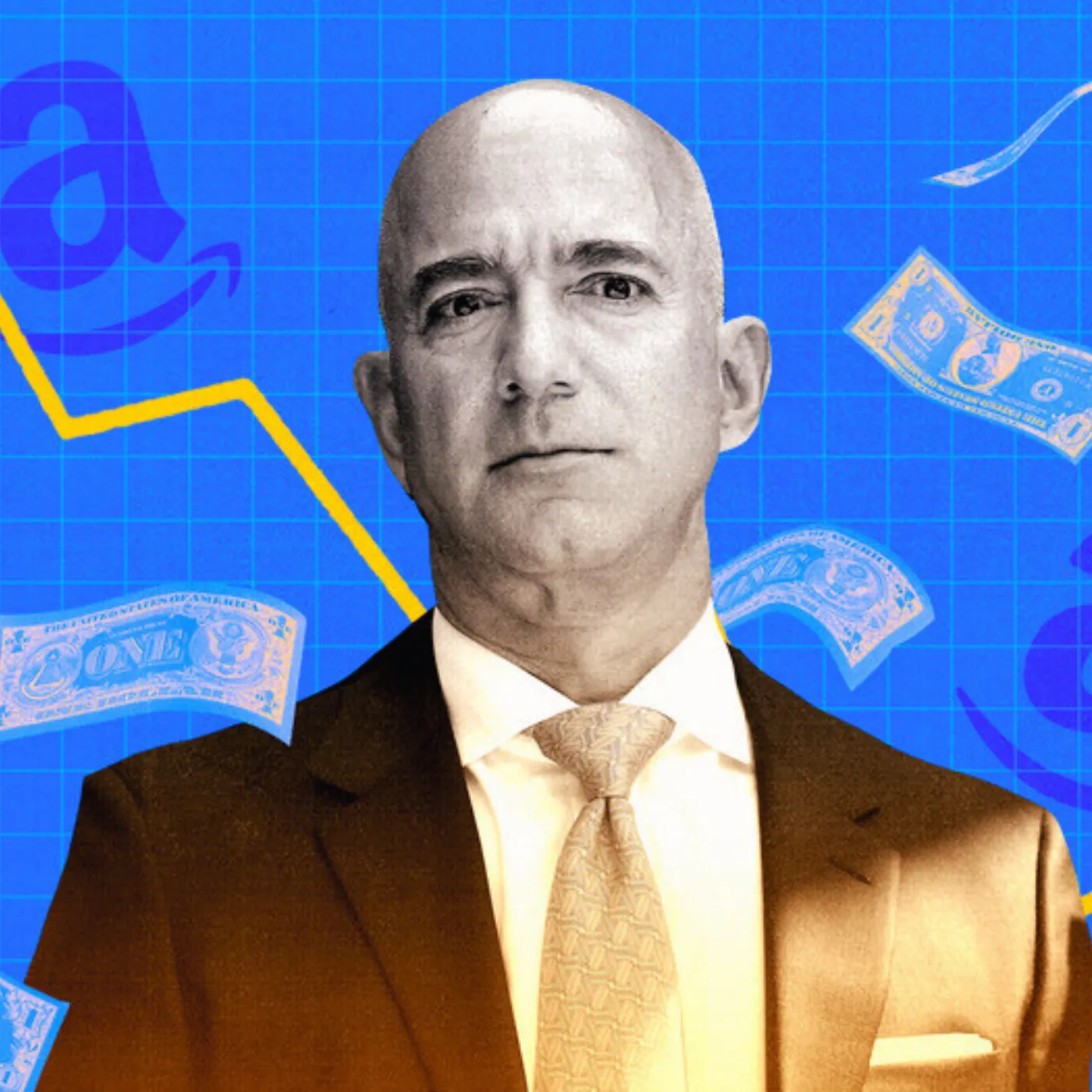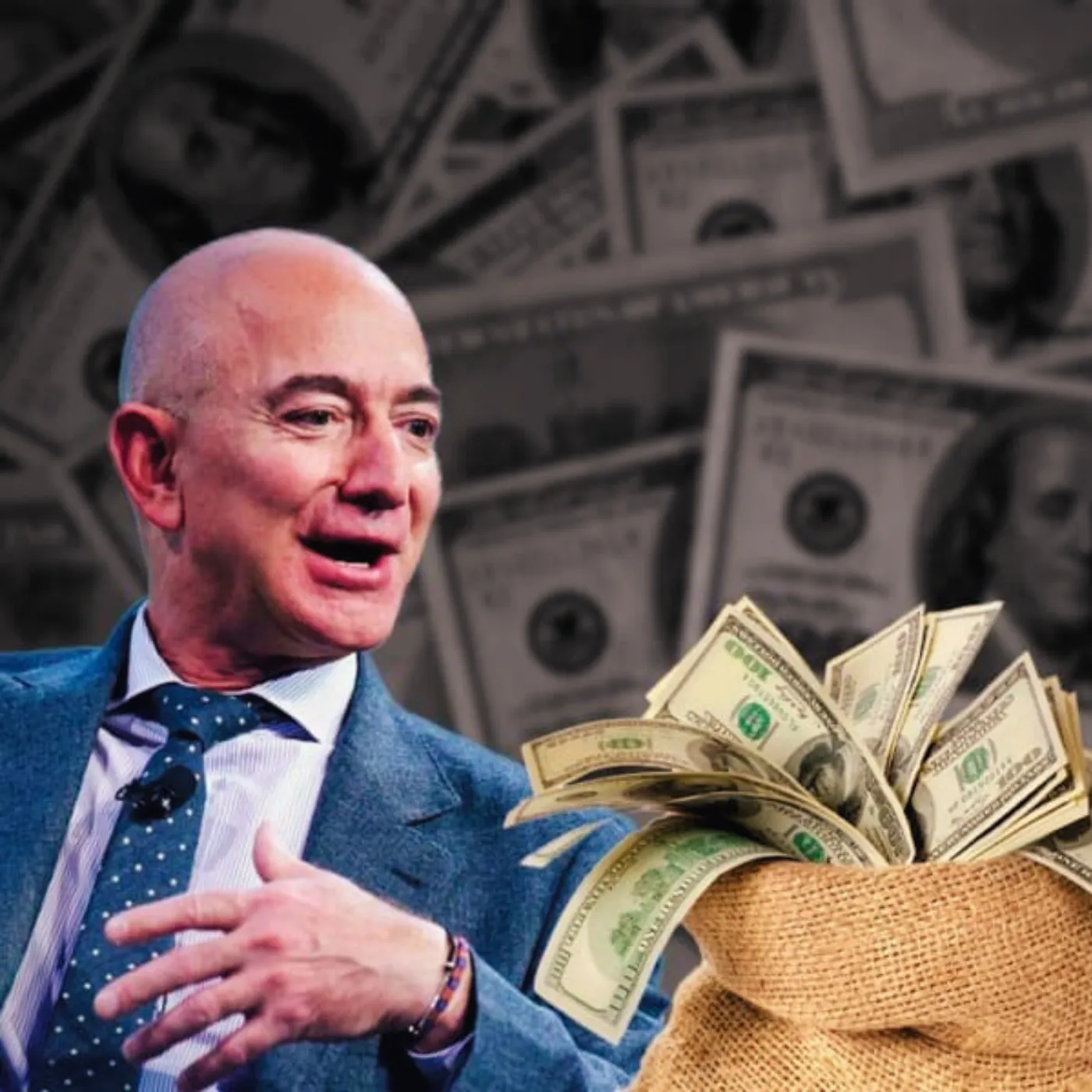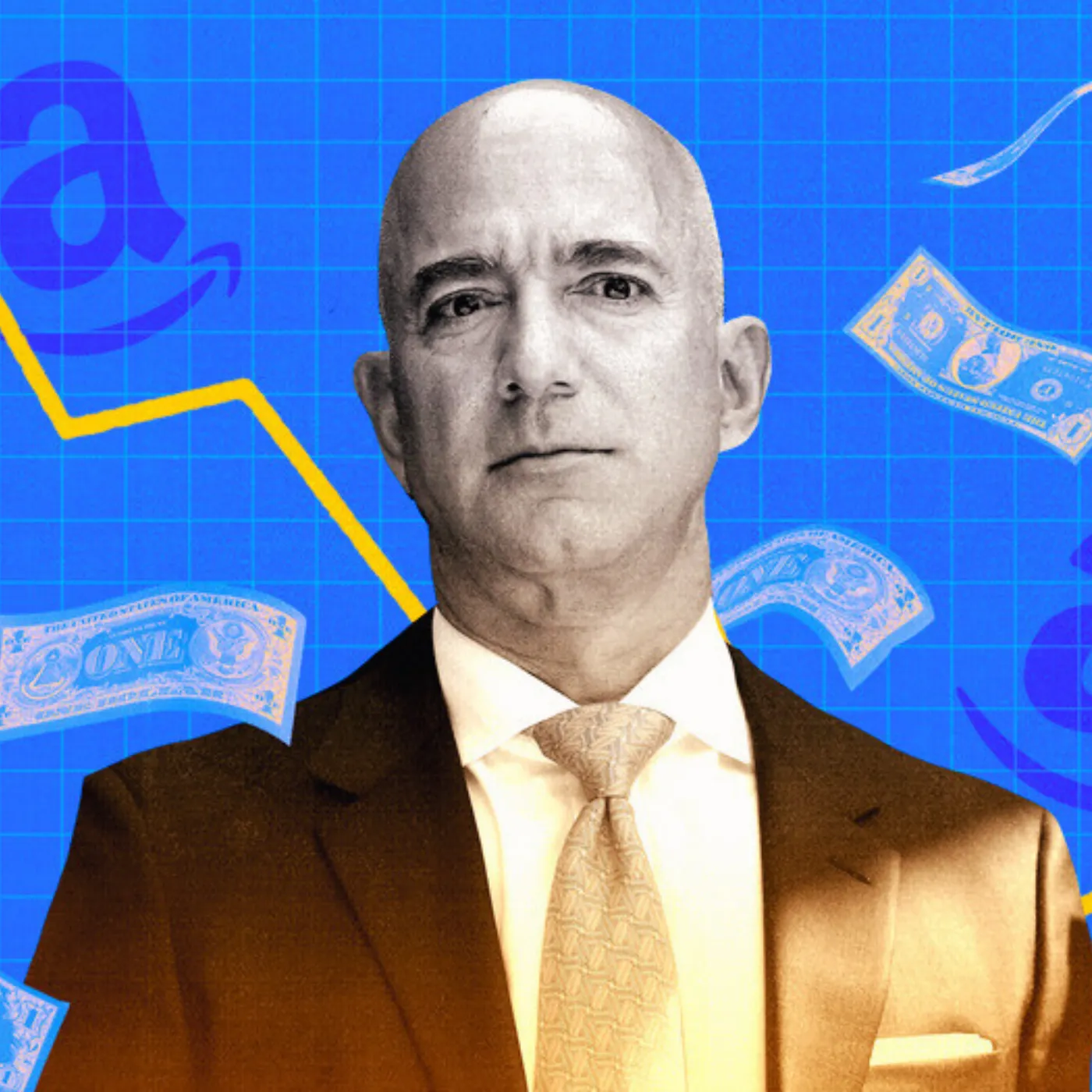

Jeff Bezos Believes Uncomfortable Truths Are the Secret to His 1.97 Trillion Empire
Jeff Bezos is one of the most successful entrepreneurs of the modern era. His journey from an ambitious startup founder to the head of a $1.97 trillion empire, Amazon, has made him a household name. But what truly sets Bezos apart from the masses of successful entrepreneurs? It’s not just his ability to innovate or his relentless drive. The secret to Bezos’ monumental success lies in one simple yet profound concept: the willingness to embrace uncomfortable truths.

The Power of Uncomfortable Truths
At the heart of Bezos’ business philosophy is the belief that growth, innovation, and longevity are all rooted in confronting uncomfortable truths head-on. As the founder of Amazon, Bezos made it clear from the very beginning that the path to success isn’t paved with easy decisions or comfortable choices. Instead, it is about facing the hard, often unpleasant realities of business and life.
Bezos’ focus on uncomfortable truths is reflected in his leadership style. No matter how successful Amazon became, Bezos always stressed the importance of constant evaluation, self-criticism, and the willingness to make bold, tough decisions—decisions that often went against the grain of conventional business thinking.
Truths Over Comfort: The Bezos Way
In a world where many CEOs and entrepreneurs are focused on maintaining the status quo or protecting their comfort zones, Bezos took a radically different approach. He prioritized long-term growth over short-term wins. Rather than making decisions based on immediate profit or ensuring comfort for employees and customers, Bezos chose to make decisions based on what was best for Amazon in the long run.
Bezos famously said that “if you double the number of experiments you do per year, you’re going to double your inventiveness.” This willingness to experiment, to risk failure, and to constantly challenge Amazon’s existing business model is rooted in his commitment to uncomfortable truths. He didn’t shy away from the fact that not all his ideas would work—and he didn’t let failure derail his pursuit of success.
Innovation Through Uncomfortable Realities
Bezos’ belief in uncomfortable truths also extends to innovation. Amazon didn’t become a $1.97 trillion company just because it sold books online. Instead, Bezos constantly sought to reinvent and disrupt entire industries. Whether it was cloud computing with AWS, streaming with Amazon Prime Video, or even pushing the boundaries of artificial intelligence and automation in warehouses, Bezos never accepted the status quo.
By challenging conventional wisdom, Bezos paved the way for Amazon’s constant evolution. This disruptive mindset is essential in today’s fast-paced world. Comfort zones might offer temporary stability, but without constant adaptation, companies quickly fall behind. Bezos recognized that staying at the top means being uncomfortable with where you are at all times.
Amazon’s move into cloud computing with AWS (Amazon Web Services) is a perfect example of Bezos confronting uncomfortable truths. At the time, the idea of offering computing services to other businesses seemed bizarre. But Bezos saw the potential, and despite the risk, he pushed Amazon into a new market. Today, AWS is one of Amazon’s most profitable divisions, with a market share of more than 30% in the cloud computing space.

Facing Failure: Bezos’ Greatest Strength
Failure is often seen as something to avoid at all costs. But for Bezos, failure was not a setback—it was an essential part of the growth process. One of the reasons why Bezos was able to create a $1.97 trillion company is his ability to embrace failure, learn from it, and move forward.
Bezos’ first big failure came with the launch of Amazon’s Fire Phone, a product that failed miserably in the marketplace. Many entrepreneurs would have been deterred by such a colossal failure, but Bezos saw it differently. Instead of clinging to his initial vision and ignoring the failure, he took the lessons learned from the Fire Phone’s shortcomings and applied them to other areas of Amazon’s business.
In fact, Bezos has been quoted saying, “If you’re not willing to be misunderstood for long periods of time, then you’re not going to be able to innovate.” This commitment to continuous reinvention and improvement despite setbacks is what separates great companies like Amazon from the rest.
Building a Legacy: The Long Game
What separates Bezos from many other business leaders is his ability to play the long game. He didn’t start Amazon with a mindset focused on short-term profits or immediate returns. Instead, Bezos had a vision for creating a company that could transform industries and change the world—even if it meant taking uncomfortable steps along the way.
Bezos was often criticized in the early days of Amazon for prioritizing growth over profit. Yet, he famously turned down short-term profit-making opportunities that didn’t align with his long-term vision for the company. His willingness to lose money early on for the sake of building a more robust, sustainable business ultimately paid off. This long-term strategy, which is rooted in embracing discomfort and facing the hard truths, has been a major contributor to Amazon’s rise.
As Bezos has said, “You have to be willing to be misunderstood for long periods of time.” This ability to ignore the critics and stick to his vision is a hallmark of great leaders. For Bezos, the road to success wasn’t about avoiding failure or staying comfortable—it was about sticking to the uncomfortable truths and trusting in the process.
The Reality of Leadership
One of the most difficult aspects of leading a company like Amazon is the reality that not everyone will be on board with your decisions. Bezos, like many great leaders, had to make decisions that were not always popular or well-understood. Leading with uncomfortable truths meant that Amazon’s culture was not always easy for everyone to embrace.
In fact, Amazon’s corporate culture has been the subject of significant scrutiny. The company’s relentless focus on performance, efficiency, and speed has created an environment where employees often face high expectations and immense pressure. Many critics have pointed out the high turnover rates and demanding work conditions in Amazon warehouses. But Bezos’ philosophy of prioritizing truth over comfort means that he was not afraid to push boundaries, even if it meant making tough decisions that didn’t always align with popular opinion.
Bezos’ Impact Beyond Amazon
Jeff Bezos’ approach to business isn’t just about Amazon. His philosophy of facing uncomfortable truths has impacted his other ventures as well, particularly his space exploration company, Blue Origin. Bezos has expressed his desire to make space travel accessible to everyone, and that ambition comes with its own set of uncomfortable truths.
Building the technology to make space tourism a reality is a huge challenge. It’s a long and expensive road that will require significant risk-taking and uncomfortable decision-making. But Bezos, true to form, is committed to pushing the boundaries of what’s possible, even if it means facing the discomfort of failure and uncertainty.
Why Great Companies Embrace Uncomfortable Truths
Great companies like Amazon understand that comfort breeds complacency. In a world where technology and business models are constantly evolving, staying comfortable means falling behind. The companies that are able to achieve greatness are the ones that embrace change, discomfort, and the harsh realities of the marketplace. By facing these uncomfortable truths head-on, they are able to adapt and innovate, creating long-lasting success.
The reality is, discomfort is where innovation thrives. Without it, businesses become stagnant, unable to evolve or take the risks needed to remain relevant. Jeff Bezos built Amazon on this foundation of discomfort, constantly challenging his team to innovate, push boundaries, and embrace failure as a means of growth.

Conclusion
Jeff Bezos’ $1.97 trillion empire was built on a simple but powerful idea: that truth and discomfort are the catalysts for greatness. By always prioritizing the long-term vision over short-term comforts, Bezos created a company that has disrupted industries and changed the world. His willingness to confront uncomfortable truths, embrace failure, and innovate relentlessly is what sets him apart from other business leaders. In a world where so many companies settle for mediocrity, Bezos’ unwavering commitment to discomfort is what will continue to fuel Amazon’s success for years to come.
In the end, Amazon’s legacy proves that the uncomfortable truths that Bezos embraced are the very things that separated his company from the rest—and the reason why it’s one of the most valuable companies on the planet today.


















